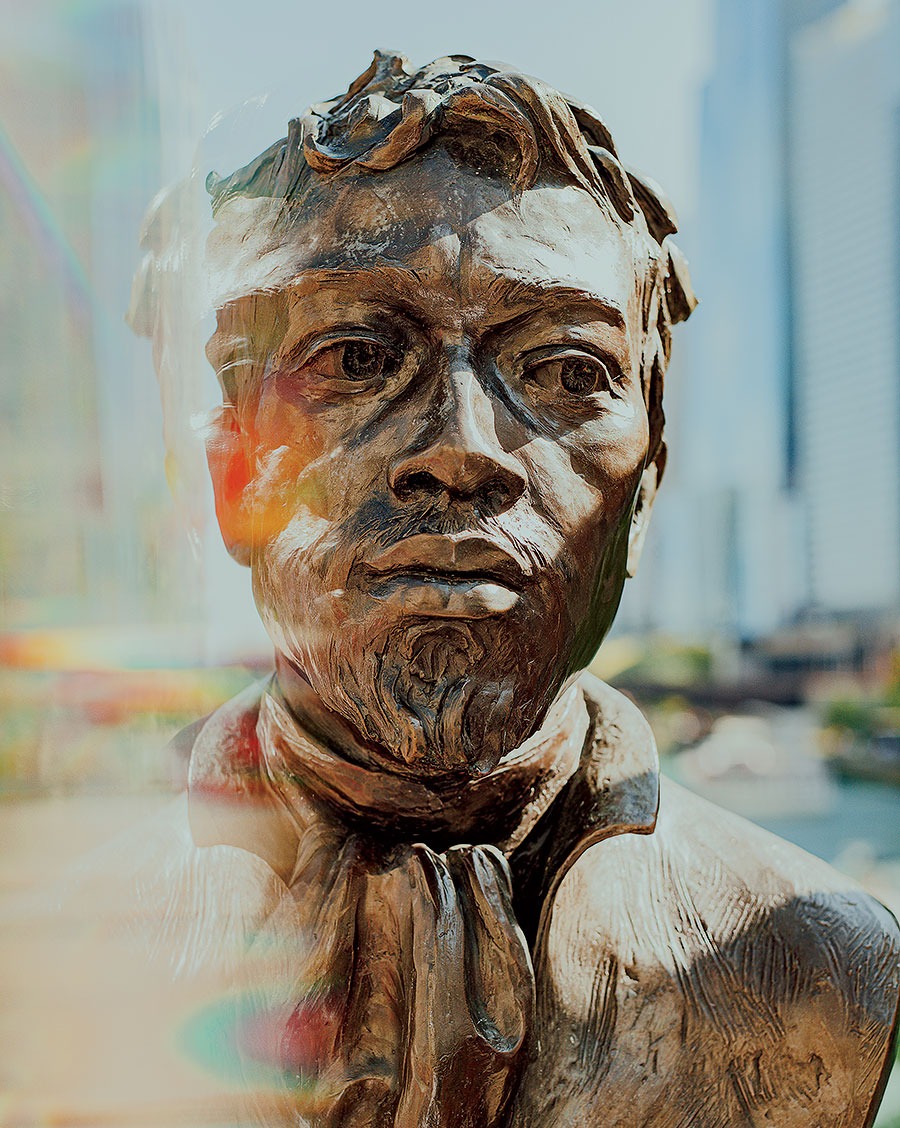Jean Baptiste Point DuSable: His name echoed throughout the city this year as Lake Shore Drive was rechristened in his honor. But how do we think about DuSable in the 21st century — and what, in turn, does that say about us as a city?
DuSable is considered the first nonnative settler in the place we now know as Chicago. Once we might have considered him the “founder” of Chicago, but as we reevaluate historical narratives that erase Indigenous influences on our society, this language has fallen out of favor. It should be noted that DuSable likely succeeded in his time trading on the banks of the Chicago River in large part because of the support and translation skills of his Potawatomi wife, Kitihawa. So what, then, to make of DuSable, a man possibly born of a French enslaver father and an African enslaved mother in present-day Haiti? DuSable’s legacy at any given moment in Chicago is more an illustration of contemporary attitudes than of the man himself.
DuSable High School opened in the 1930s when a still-nascent migration had already begun to dramatically reshape the demographics of Chicago. The powers that governed the city recognized a need for a new high school to serve the exploding population resulting from the Great Migration. The powers also preferred for that educational service to happen in buildings separate from white students. And so this early evocation of DuSable points to a growing Black community centered on the South Side and to the white power structure’s dealing with the demands this community would place on the city both implicitly and explicitly. To name the school after this early Black settler seems a concession to Black Chicago’s growing influence as well as a useful marker of the school as Black — helpful information in a rapidly changing landscape.
The DuSable Museum of African American History was founded in 1961 as the Ebony Museum of Negro History and Art and renamed in 1968. The moment at which the museum became the DuSable was during the transition from the civil rights movement to the Black Power movement. That seems a potent time, when “Black” was becoming a powerful political and cultural signifier for African Americans, to have invoked the memory of Chicago’s African-descended pioneer.
What do we make of the celebration of DuSable in a city that so chronically underserves its Black residents? How do we make sense of a major U.S. city championing a possible son of Hispaniola while federal agents whip and deport Haitians at our borders? DuSable might have been a man born in one unfree land who made his mark on another unfree land. We are a city that celebrates representations of the people we denigrate. Perhaps we are DuSable’s descendants in a way.
Now Lake Shore Drive is the latest to carry the DuSable name. DuSable the man and DuSable the legacy are somewhat opaque to us, or at least ever changing. But what can we know?
We know that DuSable and his family stayed in Chicago for 20 years and ultimately left. We know that he traded for the time he sat on these shores. We know that his land ended up in the possession of John Kinzie, a white man who would go on to be far more revered as a founder of Chicago for the next two centuries. We know that Lake Shore Drive is now named Jean Baptiste Point DuSable Lake Shore Drive. We know several Black legislators had pushed for this change since the 1990s at least. We know Mayor Lori Lightfoot initially opposed this change and then supported it. We know Black Chicagoans are still here and still important. We also know that many are leaving the city. We know Chicago is a complicated and beautiful home.



